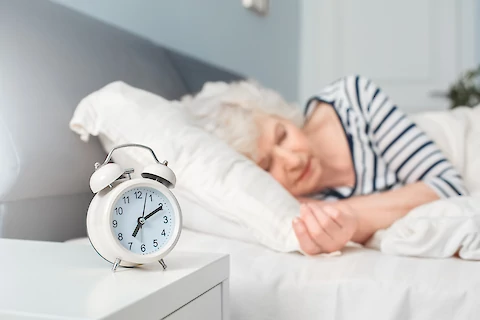
Daylight savings time adjusts our clocks twice a year, springing forward and falling back. It is an expected change, yet the shift in our daily routines can sometimes be disorienting. For our senior loved ones, the transition can be particularly challenging. Learn how you can help them adjust smoothly to these changes. These include steps for gradually shifting routines, minimizing discomfort, and enhancing their quality of life.
The Challenge of Time Transitions for Seniors
Transitions can be tricky for seniors, especially changes that alter their daily routines. This is often related to cognitive changes that come with age. As we age, our internal body clock, known as the circadian rhythm, can change and become less robust. This makes it more challenging to adapt to the time differences resulting from daylight savings time.
The hour difference in daylight savings can profoundly impact everything from decreased energy levels to changes in meal times and disruptions in sleep patterns. For seniors with cognitive impairments or memory issues like Alzheimer's or dementia, sudden changes in routine can lead to increased confusion, agitation, and anxiety.
Practical Tips for Gradually Shifting Routines
To ease the transition, it's beneficial to gradually shift seniors' routines instead of changing everything at once. Start by making small adjustments in their daily lives. This could mean having meals, bedtime, or other activities about 15 minutes earlier or later leading up to the switch so that the change won't feel as significant when daylight savings time arrives.
It can also help to increase exposure to natural light during the day. Morning outdoor activities, such as a stroll in the park or gardening, can help reset their internal body clock. Exercise, in general, is an excellent method as it helps with sleep and promotes overall health.
Maintaining Consistent Sleep Patterns
A good night's sleep is crucial for everyone's well-being, and seniors are no exception. Maintaining regular sleep patterns is even more critical for them as sleep disturbances can lead to various health issues, including mental health problems, weakened immune systems, and increased risk of falls.
To promote good sleep hygiene, create a cozy, comfortable sleep environment. This might mean investing in blackout curtains to keep the bedroom dark or using white noise machines to block out disruptive noises. Encouraging a regular sleep schedule, even on weekends or after Daylight Savings Time, also contributes to better sleep quality. Avoid stimulating activities close to bedtime and limit naps during the day so that they can have a full, restful night.
How Are You Preparing for the Time Change?
Daylight savings time doesn't have to be a struggle for seniors. With patience, some strategic planning, and a lot of understanding, caregivers can help the elderly adjust to the time changes with minimal discomfort. The benefits are worthwhile: improved sleep patterns, reduced stress, and a sustained quality of life for our loved ones.
If you're in Princeton, Plainsboro, Princeton Junction, Hopewell, or Lawrenceville and need professional help managing these transitions, contact us. Our team at Senior Helpers Princeton is dedicated to ensuring your senior loved ones live their best lives, regardless of the time of year.